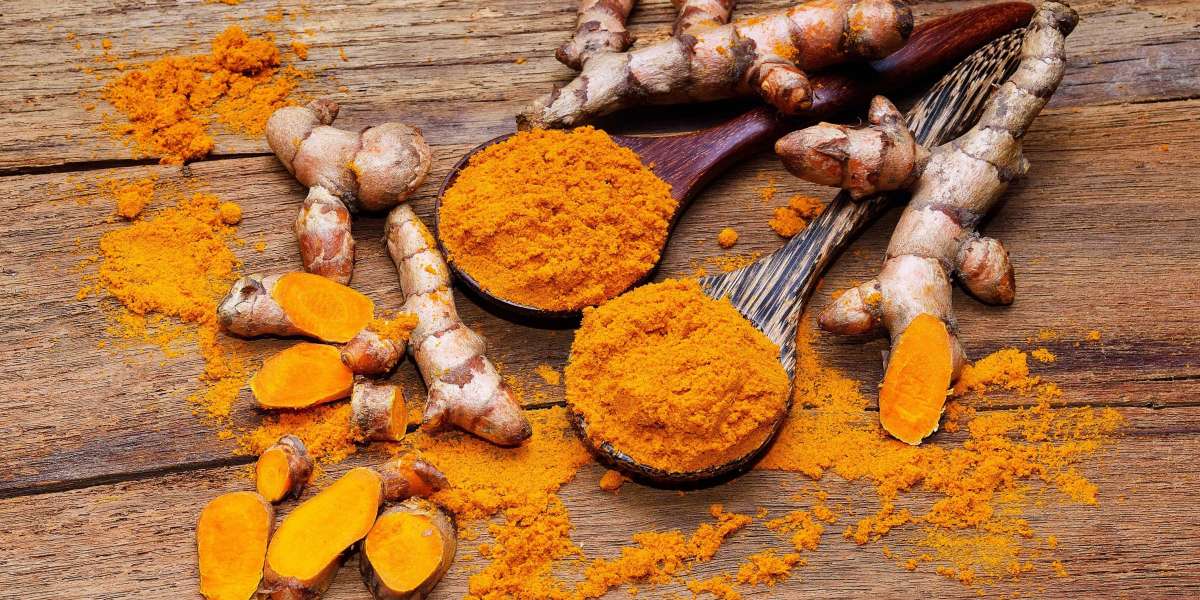Turmeric, a bright yellow spice commonly found in curry dishes, has been used for centuries in traditional medicine for its potential health benefits. One area where turmeric has garnered attention is in joint health. With its active compound, curcumin, turmeric has been studied for its anti-inflammatory and antioxidant properties, which may offer relief to those suffering from joint pain and inflammation. In this article, we delve into how turmeric works for joint health and what you need to know before incorporating it into your wellness routine.
Understanding Joint Health
Before we explore the benefits of turmeric for joint health, it's essential to understand the basics of joint health. Joints are the connections between bones that allow for movement and flexibility. They are surrounded by a protective capsule filled with synovial fluid, which helps cushion and lubricate the joints. However, various factors such as aging, injury, or certain medical conditions can lead to inflammation and discomfort in the joints, resulting in conditions like arthritis.
The Role of Inflammation
Inflammation plays a significant role in joint pain and stiffness. When the body's immune system responds to injury or infection, it triggers inflammation as a protective mechanism. However, chronic inflammation can damage healthy tissues, leading to persistent pain and discomfort in the joints. This is where turmeric and its active compound, curcumin, come into play.
Curcumin: The Active Ingredient in Turmeric
Curcumin is the main bioactive compound found in turmeric. It is responsible for the spice's vibrant yellow color and has been studied extensively for its potential health benefits. One of the most notable properties of curcumin is its powerful anti-inflammatory and antioxidant effects.
Anti-Inflammatory Properties
Curcumin works by inhibiting inflammatory pathways in the body, thereby reducing the production of inflammatory molecules such as cytokines and prostaglandins. By doing so, it helps alleviate inflammation in the joints, which can provide relief from pain and stiffness associated with conditions like arthritis.
Antioxidant Effects
In addition to its anti-inflammatory properties, curcumin also acts as a potent antioxidant. Antioxidants help neutralize harmful free radicals in the body, which can contribute to oxidative stress and tissue damage. By scavenging these free radicals, curcumin helps protect the joints from oxidative damage and supports overall joint health.
Research on Turmeric for Joint Health
Several studies have investigated the potential benefits of turmeric and curcumin for joint health. While more research is needed to fully understand their effects, the findings so far are promising.
A meta-analysis published in the Journal of Medicinal Food in 2016 examined the results of eight randomized controlled trials involving a total of 606 patients with arthritis. The analysis found that supplementation with curcumin was associated with significant improvements in pain and physical function compared to placebo.
Another study published in the Journal of Alternative and Complementary Medicine in 2019 evaluated the efficacy of a turmeric extract in patients with knee osteoarthritis. The researchers found that supplementation with turmeric extract reduced pain and improved physical function in participants with knee osteoarthritis compared to placebo.
Incorporating Turmeric into Your Routine
If you're considering using turmeric for joint health, there are several ways to incorporate it into your routine:
Dietary Sources: Turmeric can be added to your cooking in the form of powder or fresh root. Try adding it to curries, soups, stir-fries, or smoothies for a flavorful boost.
Supplements: Turmeric supplements are available in various forms, including capsules, tablets, and extracts. Look for products standardized to contain a high concentration of curcumin for maximum effectiveness.
Turmeric Tea: You can also enjoy the benefits of turmeric by brewing it into a soothing tea. Simply steep fresh or powdered turmeric in hot water and add honey or lemon for flavor.
Safety Considerations
While turmeric is generally safe for most people when consumed in moderation, there are a few considerations to keep in mind:
Blood-Thinning Effects: Turmeric may have mild blood-thinning effects, so individuals taking blood-thinning medications should consult their healthcare provider before using turmeric supplements.
Gastrointestinal Upset: Some people may experience gastrointestinal upset, such as nausea or diarrhea, when consuming large amounts of turmeric or curcumin. Start with small doses and monitor your body's response.
Allergic Reactions: Allergic reactions to turmeric are rare but can occur in some individuals. If you have a known allergy to ginger or yellow food coloring, you may also be allergic to turmeric.
Conclusion
Turmeric, with its active compound curcumin, offers promising benefits for joint health due to its anti-inflammatory and antioxidant properties. While research on turmeric for joint health is still ongoing, the available evidence suggests that it may help reduce pain and improve physical function in individuals with arthritis and other joint conditions. By incorporating turmeric into your diet or supplement regimen, you may support your overall joint health and well-being. However, it's essential to consult with your healthcare provider before starting any new supplement regimen, especially if you have underlying health conditions or are taking medications. With the right approach, turmeric could be a valuable addition to your joint health toolkit.




